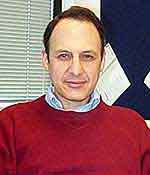By Dan Gunderson
Minnesota Public Radio
July 29, 2002
| |
|
|
|
||
Micheal Katz believes it's important to understand poorhouse history. He sees some of the reasoning that led to establishment of the poorhouse in the 1800s affecting public policy today.
"We've had in this country a long tradition - going back into the early 19th century - of making distinctions between the deserving and undeserving and the worthy and unworthy poor. And we do it today," says Katz. "We do want to, it seems, moralize the condition of some of the most unfortunate people in our midst."
Poor people are better off today in many ways compared with 100 years ago. But Michael Katz sees the social philosophy of the poorhouse reflected in homeless shelters and nursing homes for people on government assistance. There's much to be learned from understanding the poorhouse era in America, says Katz.
"We can learn about the importance of having specialized kinds of institutions to deal with special problems. A second thing we can learn is the impossibility of drawing a sharp line between the deserving and undeserving poor," says Katz. "We can't eliminate poverty or dependence by punishing poor people. Punitive policies don't seem to work very well in the long run."

